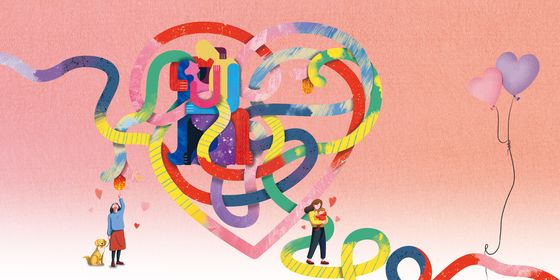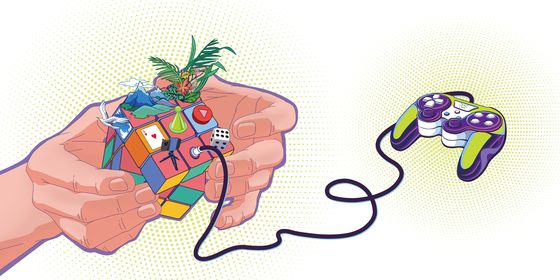Addictive idioms about alcohol
“How many great men were forgotten through the ages? But real drinkers are more famous than sober sages!” Tang dynasty (618 — 907) poet Li Bai wrote in his “Song For Drinking.” The renowned alcoholics he was referring to where mostly poets, artists, or writers, whose booze consumption seemed to give them divine inspiration.
China’s history is littered with famous drinkers, many of whom believed that booze held beneficial properties. The Three Kingdoms era (220 — 280) warlord Cao Cao believed alcohol could relieve depression, writing “What can relieve us of sorrow? Only Dukang wine (何以解忧?唯有杜康).”
Du Fu, “Poet Sage” of the Tang dynasty, believed drinking was the best means of celebration. When he heard the news that the Rebellion of An Lushan and Shi Siming had been crushed, he excitedly wrote “We must sing and swig in broad daylight; and make the homeward trip on sunny spring days (白日放歌须纵酒,青春作伴好还乡)!”
Despite the praises for alcohol sung by poets and warlords, anyone who has touched a cup of baijiu will know that the effects of drinking can be far from uplifting or celebratory. Many Chinese idioms still in use today refer to theose negative effects of alcohol. For example:
酒后失言 Indiscreet remarks after drinking
A few glasses of wine can relieve social tension and remove one’s inhibitions, but too much alcohol sometimes results in inappropriate remarks. This chengyu describes such a situation, and is often used after the fact to apologize.
I am so sorry that I said those thing after drinking, but I didn’t really mean it.
Zhēnde shì fēicháng bàoqiàn, wǒ jiǔhòu shīyán le, dàn nà búshì wǒ de běnyì.
真的是非常抱歉,我酒后失言了,但那不是我的本意。
酒后吐真言 Speaking truth after drinking
Sometimes, though, people won’t buy 酒后失言 as an excuse. This chengyu implies that people say what’s really on their mind after a few drinks, or in vino veritas.
After alcohol, the truth comes out; now I finally know what you think of me.
Jiǔhoù tǔ zhēnyán, xiànzài wǒ zǒngsuàn shì zhīdào nǐ shì zěnme xiǎng wǒ de le.
酒后吐真言,现在我总算是知道你是怎么想我的了。
酒肉朋友 Wine-and-meat friends
An ancient folk saying states that “When drinking with a bosom friend, a thousand cups will be still too few (酒逢知己千杯少).” But at the same time, people believe that those you can only socialize with are not true friends at all. This chengyu was created to describe such shallow friendships, literally meaning “friends while there is food and wine,” indicating that once the fun is over, the friendship will end.
Wine and meat friends cannot go through hadrships together.
Jiǔrǒu péngyǒu shì bùnéng gòng huànnàn de.
酒肉朋友是不能共患难的。
酒色财气 Wine, women, avarice, and temper
According to the Book of Later Han, Yang Bing, an upright official in the Han dynasty (206 BCE — 220 CE) once proudly claimed: “These three vices cannot corrupt me: wine, women and money.” In later dynasties, pride was added to the list, with the four elements collectively called “The four cardinal vices of life (人生四戒).” Putting aside its sexist undertones, this term is sometimes used as a catch-all term for immoral behavior:
How many promising young people lost themselves in vices?
Yǒu duōshǎo dà hǎo qīngnián zài jiǔ sè cái qì zhīzhōng míshī le zìjǐ?
有多少大好青年在酒色财气之中迷失了自己?
酒色之徒 One who lusts after wine and women
Those indugling themselves in vice are likely to earn themselves a bad reputation. This degoratory term is often used to express contempt for such people:
I thought he was a decent man, but actually, he gives all his time to wine and women.
Wǒ yuán yǐwéi tā rénpǐn búcuò, yuánlái jìng shì ge jiǔsè zhī tú.
我原以为他人品不错,原来竟是个酒色之徒。
花天酒地 Flower sky and alcohol earth
This term is used to describe the dissolute lifestyle of those 酒色之徒, literally meaning to live in the world of wine and women.
He indulges in debauchery every day, and has already forgotten his lofty ambitions.
Tā méitiān huātiān-jiǔdì de, zǎo wàngle nàxiē xióngxīn-zhuàngzhì le.
他每天花天酒地的,早忘了那些雄心壮志了。
酒池肉林 Lakes of wine and forests of meat
King Zhou (Di Xin), the last emperor of the Shang dynasty (which reigned in the second millenium BCE), was truly representative of 酒色之徒. The Records of the Grand Historian, finished around 94 BCE, described his extravagant life: “[The king] filled the lake with wine, hung meat onto trees of the whole forest, and ordered naked young men and women to chase each other and frolic around to entertain him.” His tyrannical rule and debauched life is said to have led to the fall of the Shang dynasty. The Zhou dynasty that followed seemed to learn lessons from the Shang, and even partly prohibited liquor consumption at one stage, mandating that government officials could only consume booze on certain occasions such as when worshiping ancestors or celebrating the harvest.
This chengyu, became a byword for a life of extravagance and licentiousness, but mostly still refers to the infamous King Zhou:
Relying on the rich legacy passed down from his ancestors, he lives an extravangant and wasteful life akin to the lake of wine and forest of meat.
Zhàngzhe fēnghòu de zǔchǎn, tā guòzhe jiǔchí-ròulín bān de shēmí shēnghuó.
仗着丰厚的祖产,他过着酒池肉林般的奢靡生活。
酒囊饭袋 Wine sack and rice bag
Sometimes, even if you don’t drink at all, you can be criticized with an alcohol-related chengyu. This term doesn’t describe people’s capacity for liquor or food; instead, it is a metaphor to describe someone who is useless, indicating that they live only to consume food and drink, and contribute nothing.
He cannot handle even such a simple task! What a useless sack!
Zhè diǎnr xiǎoshì dǒu zuò bùhǎo, tā zhēn shì ge jiǔnáng-fàndài!
这点儿小事都做不好,他真是个酒囊饭袋!
Cover image from VCG












